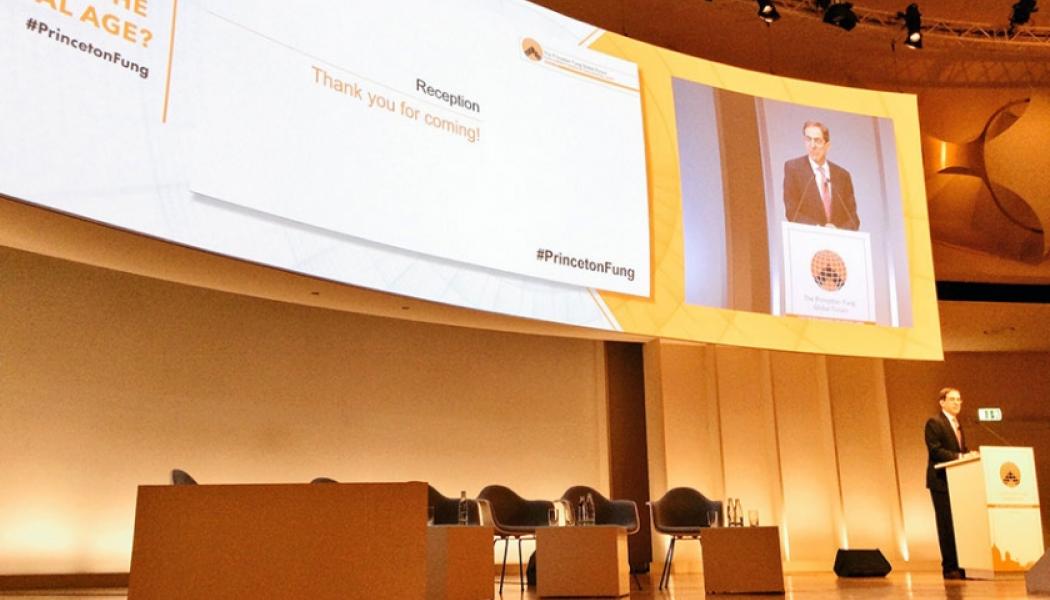
In a world filled with cyber hacks, communication silos, fake news and government surveillance, can liberty really survive the digital age?
That question—which is playing out in real time across the globe—was the focus of the 2017 Princeton-Fung Global Forum held in Berlin on March 20 and 21. The event, established in 2012 through a generous gift from William Fung ’70, drew university leaders and policymakers from around the world.
The forum featured several addresses by leaders at the digital vanguard. Internet pioneer and Google Vice President Vint Cerf spoke on the past, present and future of the Internet; Microsoft President and Chief Legal Officer Bradford Smith ’81 made the case for a “digital Geneva Convention”; former European Commission Vice President and Commissioner for Digital Economy and Society Neelie Kroes explored whether we have lost control of the Internet; and Roger Dingledine, president and co-developer of the Tor Project, which enables anonymous communication online, discussed Internet privacy in the age of “big surveillance.”
Several Princeton faculty members participated in panel discussions:
- Joel Reidenberg, the inaugural Microsoft Visiting Professor of Information Technology Policy, addressed the way worldwide access to the Internet has blurred myriad boundaries: legal, geographic, cultural, and public/private.
- David Dobkin, the Phillip Y. Goldman ’86 Professor in Computer Science, tackled surveillance, data collection, and the boundaries of privacy and human rights vs. security.
- Professor of Computer Science Nick Feamster’s panel examined tradeoffs of vulnerability vs. efficiency for the “Internet of Things,” where the physical world and the Internet converge in web-connected objects.
- Edward Felten, director of the Center for Information Technology Policy and the Robert E. Kahn Professor of Computer Science and Public Affairs, explored the governance of a world dependent on digital tools but also increasingly vulnerable to cyber weapons that can put liberty and safety at risk.
- Jennifer Rexford ’91, chair of Princeton’s Department of Computer Science and the Gordon Y. S. Wu Professor in Engineering, discussed the effects of unfiltered, open access to information vs. access (denied) to the digital world.
- Sociology professor Matthew Salganik’s panel weighed communication silos and the spread of fake news against the use of media to connect and unite large numbers of people to effect change.
At the end of the two-day global conference, Princeton University President Christopher L. Eisgruber ’83 thanked participants and shared a final thought: “Liberty depends on critical thought, and there's no liberty without privacy.”


